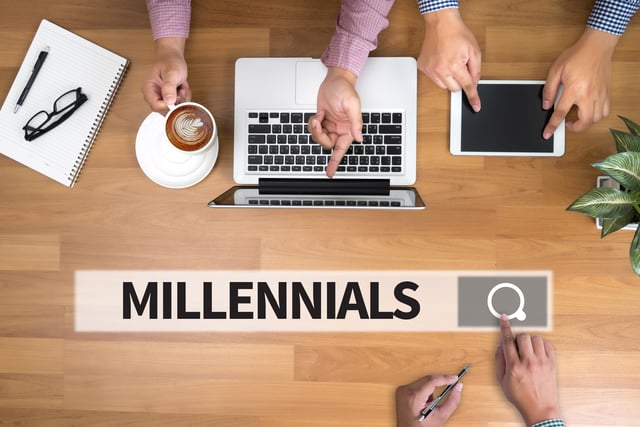
Two recent surveys, one by Gallup and the other by PricewaterhouseCoopers, take a comprehensive look at the life and work habits of the millennial generation. They are both excellent and highly worthwhile reads for any business person looking to get a beat on the younger set. They also affirm why a few years back CultureWizard began including an inter-generational training model in many of our courses and programs.
Millennials might be an exceptional generation, but they’re not necessarily the easiest to work with and manage. The Gallup survey focused on American Millennials while the PWC survey included data from 75 countries. Both, however, came away with very similar findings, “Millennials will change the world decisively more than any other generation.” Jim Clifton, Chairman and CEO of Gallup.
Millennials are a “disruptive generation,” in that their approach to social issues, politics, technology, relationships, how they assimilate information, and their notions of work and career are significantly different and more progressive than the usual shift that happens between generations. But without doubt, it’s the advancement of technology and the speed at which information is disseminated that has shaped the Millennial generation most. “They will be the most high maintenance workforce in the history of the world, but they may also be the most high performing,” says Bruce Tulgan, consultant and author of It’s Okay to Manage Your Boss.
So, as more and more Millennials enter and rise in the global workplace, what are some of the key points the two surveys found in how to relate, manage and understand this new and nuanced work force.
• Purpose with a paycheck. It seems growing up in the era of TED talks and WE Day Celebrations has made an impact upon the millennial generation and “meaningfulness” tends to mean just as much as money. According to Gallup, “For Millennials, compensation is important and must be fair, but it’s no longer the driver. The emphasis for this generation has switched from paycheck to purpose.”
• Work/Life balance is more important to the millennial generation than any previous one. Millennials will work hard, but as they’ve grown up with the Internet, laptops and email, they’re not the office bound generation of their parents. Millennials expect a level of workplace flexibility and the understanding that work can get done at anytime and from various places, not just the office.
• The “Coaching” generation. Even Millennials from hierarchical countries and cultures are more egalitarian in outlook than their parents. Accordingly, they respond better to coaching than old-fashioned bosses and directives. When managing Millennials a hands-on “coach-approach” that values them as both people and employees, and builds on their strengths, will yield far better results.
• The techno-communication generation. With technology dominating Millennials lives, they are often more comfortable communicating electronically at work than face-to-face. According to the PWC survey, “This is often a significant source for intergenerational conflict in the workplace and many Millennials feel held back by rigid or outdated working styles” and modes of communication—like actually leaving your computer to go and talk to a colleague directly.
• Developing strengths, not fixing weakness. One of the outgrowths of growing up amid ubiquitous technology, where information and expertise has never been more than a Google search away, is that Millennials are less interested in improving areas that do not interest them than any other generation. When managing Millennials, look to position them in situations that highlight and challenge their areas of strength and interest. An old-school approach of challenging Millennials to “step-up” and improve in an area that does naturally engage them will yield pour results and maybe even bring out the snarky quality for which Millennials are also known.'
How about you? ,Millennial or not; what advice and thoughts do you have about managing and working with the latest generation to enter the global workplace? We’d love to hear your thoughts.


